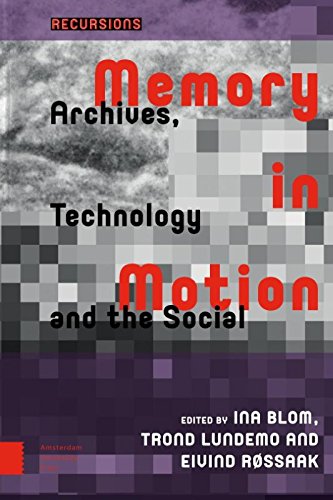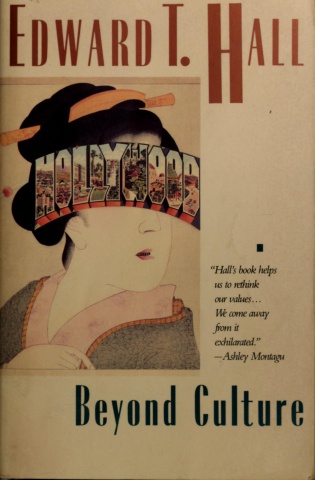Writing and Unwriting (Media) Art History: Erkki Kurenniemi in 2048 (2015)
Filed under book | Tags: · archive, art, media art, memory, music, technology

“Over the past forty years, Finnish artist and technology pioneer Erkki Kurenniemi (1941-2017) was a composer of electronic music, experimental filmmaker, computer animator, roboticist, inventor, and futurologist. Kurenniemi was a hybrid—a scientist-humanist-artist. Relatively unknown outside Nordic countries until his 2012 Documenta 13 exhibition, ”In 2048,” Kurenniemi may at last be achieving international recognition. This book offers an excavation, a critical mapping, and an elaboration of Kurenniemi’s multiplicities.
The contributors describe Kurenniemi’s enthusiastic, and rather obsessive, recording of everyday life and how this archiving was part of his process; his exploratory artistic practice, with productive failure an inherent part of his method; his relationship to scientific and technological developments in media culture; and his work in electronic and digital music, including his development of automated composition systems and his “video-organ,” DIMI-O. A “Visual Archive,” a section of interviews with the artist, and a selection of his original writings (translated and published for the first time) further document Kurenniemi’s achievements. But the book is not just about one artist in his time; it is about emerging media arts, interfaces, and archival fever in creative practices, read through the lens of Kurenniemi.”
Edited by Joasia Krysa and Jussi Parikka
Foreword by Erkki Huhtamo
Publisher MIT Press, 2015
ISBN 9780262029582, 0262029588
xxviii+340 pages
Reviews: Amanda Egbe (Leonardo, 2016), Alessandro Ludovico (Neural, 2016).
PDF (5 MB)
Comment (0)Ina Blom, Trond Lundemo, Eivind Røssaak (eds.): Memory in Motion: Archives, Technology, and the Social (2016)
Filed under book | Tags: · archive, media, media archeology, memory, sociology, software, technology

“Sociology has long had approaches to describing the ways in which social memory is enacted through ritual, language, art, architecture, and institutions—phenomena whose persistence over time and capacity for a shared storage of the past was set in contrast to fleeting individual memory. But the question of how new media changes that equation is very much up in the air—how, in the age of digital computing, instant updating, and interconnection in real time, is social memory created and enacted? This collection offers a set of essays that discuss the new technology of memory from a variety of perspectives that explicitly investigate their impact on the very concept of the social.”
Contributors: David Berry, Ina Blom, Wolfgang Ernst, Matthew Fuller, Andrew Goffey, Liv Hausken, Yuk Hui, Trond Lundemo, Adrian Mackenzie, Sónia Matos, Richard Mills, Jussi Parikka, Eivind Røssaak, Stuart Sharples, Tiziana Terranova, Pasi Väliaho.
Publisher University of Amsterdam Press, 2016
Recursions series
Creative Commons BY-NC-ND 3.0 License
ISBN 9789462982147, 9462982147
332 pages
Review: Jan Baetens (Leonardo, 2017).
Comment (0)Edward T. Hall: Beyond Culture (1976)
Filed under book | Tags: · anthropology, brain, communication, culture, education, japan, language, memory, space, technology, time

“Edward Hall’s fifth book is both a summary of many themes first raised in his volume on proxemics in 1959 and a fresh insight more reminiscent of a psychologist than an anthropologist. The psychological flavor appears epigramatically in a double index to the book. First there is the ‘Index of IDEAS and techniques of TRANSCENDENCE’. Immediately following is an ‘Index of Themes’ in addition to the normal index one finds in most textbooks. The indexes signal a selfconsciousness of the main proposition advanced by Hall, viz., ‘What is called for is a massive cultural literacy movement that is not imposed but springs from within.’ This movement of the collective individual would begin to relieve the two cultural crises in the contemporary world of human experience. One crisis is the population/environment connection and the other, ‘equally lethal’, is man himself.
The analysis offered by Hall covers 15 chapters beginning with the paradoxical nature of culture, where persons and their mechanical/technological extensions are confused. In a populist flourish, Hall labels this tendency the ‘E.T. screen’. An Extension Transference emerges where one intellectually confuses an extension with the process extended. Hall readily admits this issue is not new, being the focus of the Korzybski heritage of General Semantics. Yet, Hall does make the heuristic point that culture per se is now a prime, systematic example of ET.” (from a review by Richard L. Lanigan, American Anthropologist, 1978)
Publisher Anchor Books, 1976
ISBN 0385124740, 9780385124744
320 pages
Review (Marc R. Tool, Journal of Economic Issues, 1977)
PDF (29 MB, no OCR)
See also his monograph The Silent Language, 1959.

